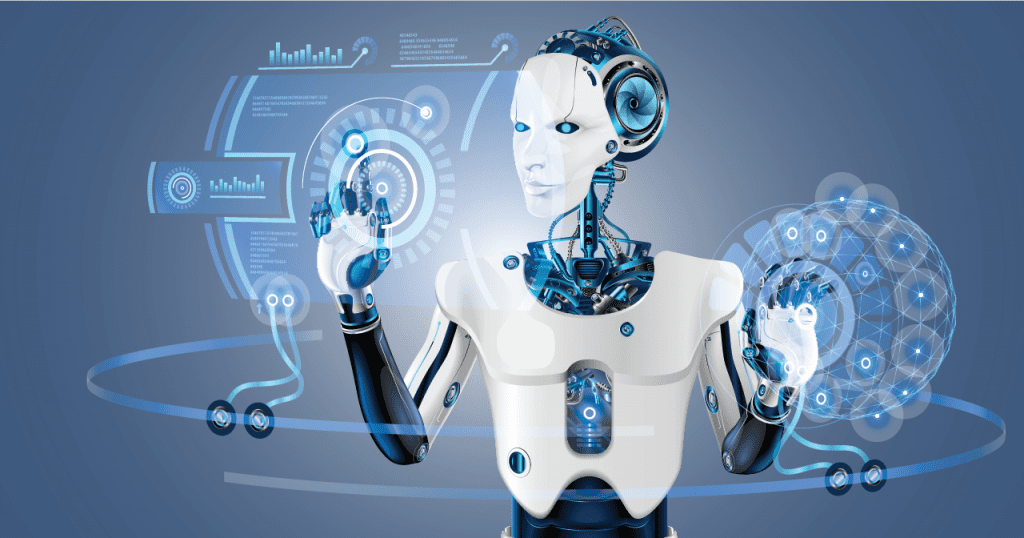Industry 4.0 is an information-intensive, networked, automated production system that drives process change, product innovation, new business models, and organizational forms. Industry 4.0 will create entirely new challenges for each company. In the future, production processes will be highly connected and integrated between various countries, markets, and cultures worldwide.
Report linker says, Global Industry 4.0 Market to Reach $219.8 Billion by 2026.
How can Industrial 4.0 technologies help increase the productivity of the manufacturing sector?
Digital Work Instructions for Operator Assistance
Digital work instructions help the operator do a job or process—information on machine operations and setup captured in narrative text, graphics, and video. The goal of the digital work instruction should be not only to support but optimize the operator utilization of a machine’s capabilities in the processes executed. It combines the advantages of digital and hard copy operations, providing a single source for the complete manufacturing process, giving a precise, proven method that integrates best-in-class features and benefits.
Digital Work Instructions for Deburring Processes
Digital Performance Management Using IIoT
The Industrial Internet of Things (IIoT) is the key to smart factories and Industry 4.0. the availability of precise, accurate, and continuous data generated by IIoT technologies enables digital performance management (DPM), which uses analytics and state-of-the-art information systems.
Industrial IoT (IIoT) allows manufacturers to make smarter decisions based on more and better real-time data. It’s the future of performance management. IIoT enables companies to make real-time predictive forecasts, share customer insights, implement new business strategies, and discover operational inefficiencies. The product life cycle of an enterprise’s products and services depends on operational efficiency. That’s why performance management is the key to improving products and services to stay in competition in the marketplace.
Fortune Business Insights says, the global internet of things (IoT) in manufacturing market size was USD 27.76 Billion in 2018 and is projected to reach USD 136.83 billion by 2026.
Operator Assistance through Augmented Reality
Today’s workforce operates high-tech machines, which require a skilled and attentive operator. When the operator is required to make multiple control point selections in a short time, it becomes tough for the operator to remain focused on their primary task while also monitoring the computer display and executing several critical tasks simultaneously. Here comes Operator Assistance (OA) through Augmented Reality. It is a new technological trend that allows people who don’t possess a detailed knowledge of an industrial process, to run complex machines safely and efficiently. OA has already been deployed in industrial areas such as power plants, petrochemicals, and refineries.
Basic Retrofit Automation for loading conveyors
This technology is the opportunity to utilize all the conveyor capacity fully. As a result, it maximizes productivity while reducing costs. Companies implement this technology to become more competitive and improve their existing resources. In addition, retrofit automation equipment allows the process to run more smoothly, saving time and money. For example, companies can eliminate process waste and increase product yields with retrofit conveyor automation.
Digital Maintenance for Manufacturing
Digital maintenance is a tool for modern manufacturing that conducts proactive maintenance activities to avoid downtime, unnecessary costs, and production delays. Hence, its Business Models are becoming a norm in the manufacturing industry. At the same time, it noticed that machine learning has a significant role in maintaining machines of all sorts.
In the next decade, digital maintenance will be as essential as engineering in manufacturing. Digital maintenance is the practice of embedding software in machines to enable remote diagnostics, monitoring, and adjustment. This new practice will allow machines to alert engineers when they need servicing and minor adjustments. It is a unique concept which deals with the problems related to the existing theoretical knowledge, problems faced by engineers and managers of industry and state practices.
Advanced Analytics (AI/ML) for Operations
Advanced Analytics (AI/ML) is now a mainstream approach for solving problems in manufacturing operations and eliminating the need for costly physical testing. Data mining and machine learning have been used for industrial process control and predictive maintenance for many years. More recently, this technology has been extended to solve manufacturing optimization problems. As a result, advanced Analytics for manufacturing operations has excellent potential for increasing profits and operations efficiency.
Robotic Process Automation for Manufacturing Services
Robotic Process Automation for Manufacturing Services is on the opposite end of the spectrum. With RPA, a company can also cut its manufacturing costs and take control of resources and operations. In addition, through intelligent automation, companies can reduce their error rates, further improving their manufacturing operation. RPA is to replace human tasks inside workplaces. It integrates directly with traditional enterprise systems to minimize training costs and data conversion efforts.

What benefits can industry 4.0 bring for the manufacturing industry?
Your team will be more robust and more collaborative.
Industry 4.0 enables a new level of productivity, moving from the shop floor to supporting digital workplaces where you now have a real-time connection with every machine in your production chain. It also enables a more collaborative and integrated workplace, shrinking the distance between devices and people. As a result, your “shop floor” becomes collaborative, no matter how far you are from your partners and suppliers, who can be communicating with you via chat, video conferencing, or simply exchanging data.
Enables you to handle potential concerns before they turn into significant issues.
Predictive analytics, real-time data, internet-connected machinery, and automation can all help you be proactive. In the end, Industry 4.0 can help you save money, increase efficiency, and improve quality and performance.
Enables you to cut costs, increase earnings, and accelerate expansion.
Industry 4.0 relies on the ongoing integration of multiple technologies such as robotics, networked production, and virtual reality. This technological advancement has introduced significant changes to manufacturing processes, which helps companies’ trim costs and boost profits while enhancing their customers’ experience.
It makes you more appealing to younger employees.
Industry 4.0 is an industrial revolution currently taking place across the business sectors, where factories are being upgraded to smart ones, connected by a smart grid, and with their manufacturing processes controlled by the factory of the future. But Industry 4.0 can offer much more than higher efficiency and competitive advantage – it can strengthen your position as a workforce brand among the eyes of a new generation of employees.
Conclusion
Industry 4.0 will likely lead to increased innovation so that manufacturers will do more than make products. Those ready to embrace Industry 4.0 may even find themselves becoming crucial players in the global economy.
If your company is prepared to take the next step into Industry 4.0, visit us at Visionify.ai, and we’ll show you how to get over those last hurdles. Computer vision is a rapidly growing sector that allows significant productivity gains in manufacturing with the help of robots. Visionify provides Factory Vision Solutions to help manufacturers improve their products and achieve greater efficiencies through simple image processing tools, such as barcode reading, template matching, and generic blob detection.

